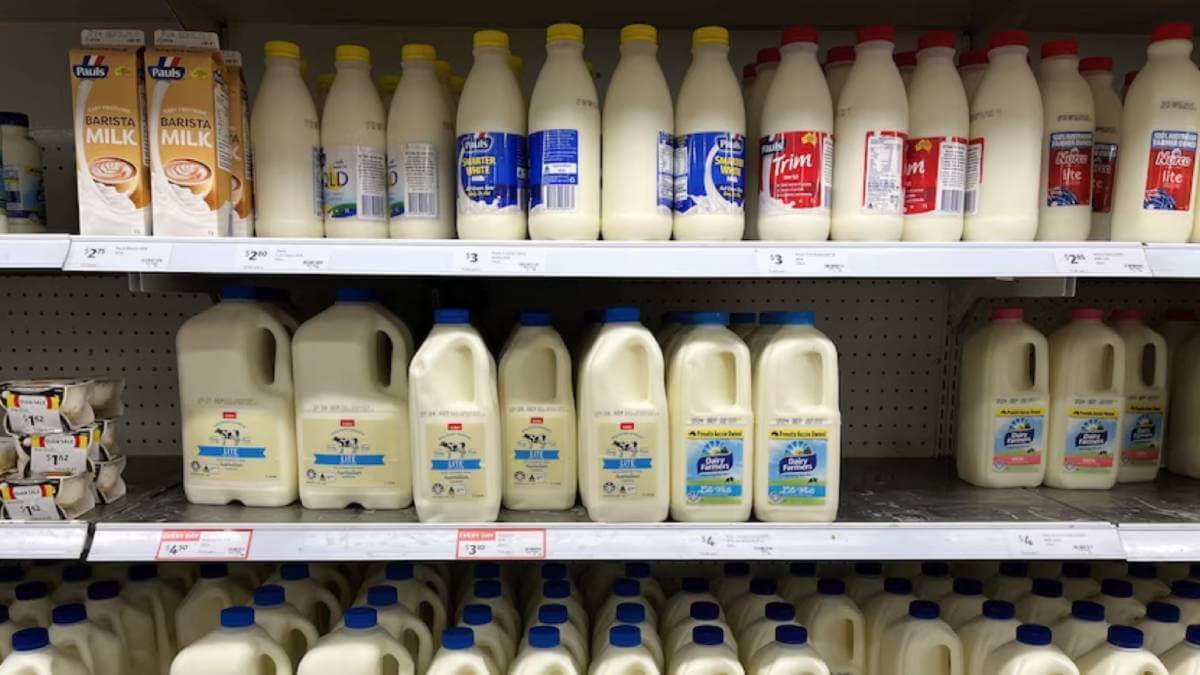Some of the main staples in Australian grocery baskets have had their sharpest price increases in decades over the past year, according to the Australian Bureau of Statistics.
Prices for milk, yoghurt and cheese are up almost 15 per cent from the same time last year.
At the same time, bread and cereals are up 12 per cent.
For fruit and vegies, the jump is closer to 5 per cent, while meat is up 4 per cent.
The grocery price hikes were reflected in increased prices for take away meals and eating out, which have jumped 7 per cent.
The latest ABS data shows overall, food prices rose 8 per cent in the past quarter, down slightly from an increase of 9.2 per cent in December, but still historically high.
The strongest price increases since Christmas were for soft drinks, fruit and vegies and a category known as “not elsewhere classified” (NEC).
The category includes coffee, tea, frozen pre-prepared meals and health supplements.
The NEC category was up 12 per cent on the same time last year and up more than 3 per cent since December.
Milk, cheese prices soaring
Dairy market analyst Michael Harvey said price increases for drinking milk and cheese were now at their highest level in decades.
“It’s not record levels, but it’s certainly multi-decade highs and it’s certainly quite significant by historical context,” Mr Harvey said.
He said dairy had until recently kept price inflation relatively low.
But the cost of producing milk had risen thanks to higher prices for fertiliser, feed, packaging, energy for processing and distribution, he said.
In the middle of each year, most dairy farmers lock in a farmgate price for their milk with a dairy processor.
Mr Harvey said last year’s contracts were set at “record high” returns for dairy farmers and much of the dairy price inflation seen this year was a flow-on effect.
“Off the back of that, dairy processors have been passing on that higher cost of milk to consumers,” he said.
Shopping around
Mr Harvey said the supermarkets had noticed shoppers looking for a bargain.
“Retailers here in Australia have been talking about consumers looking for bulk buys, or they look for canned products and long-life products, or they move away from fresh produce into frozen products, anywhere where they can, to shop to a budget,” he said.
As the ABS released its latest food inflation figures, supermarket chain Aldi announced it had “delivered $3.1 billion in savings for its customers in 2022”.
It claimed it had also put pressure on other retailers, helping save “non-Aldi shoppers $675 million” last year, as its sales figures grew by 13 per cent.
Meanwhile, market analysts NeilsenIQ reported nearly a third of Australian households were “shopping between four retailers, as they look for cheaper options”.
The ABC approached Coles and Woolworths for comment.
Last week, the United Kingdom reported its food prices had risen at the fastest rate in more than 45 years, up 20 per cent in the year to March.
For the Brits, the price of cheddar cheese was up by 50 per cent and milk was up 40 per cent.
 © 2020 Australian Broadcasting Corporation. All rights reserved.
© 2020 Australian Broadcasting Corporation. All rights reserved.
ABC Content Disclaimer

